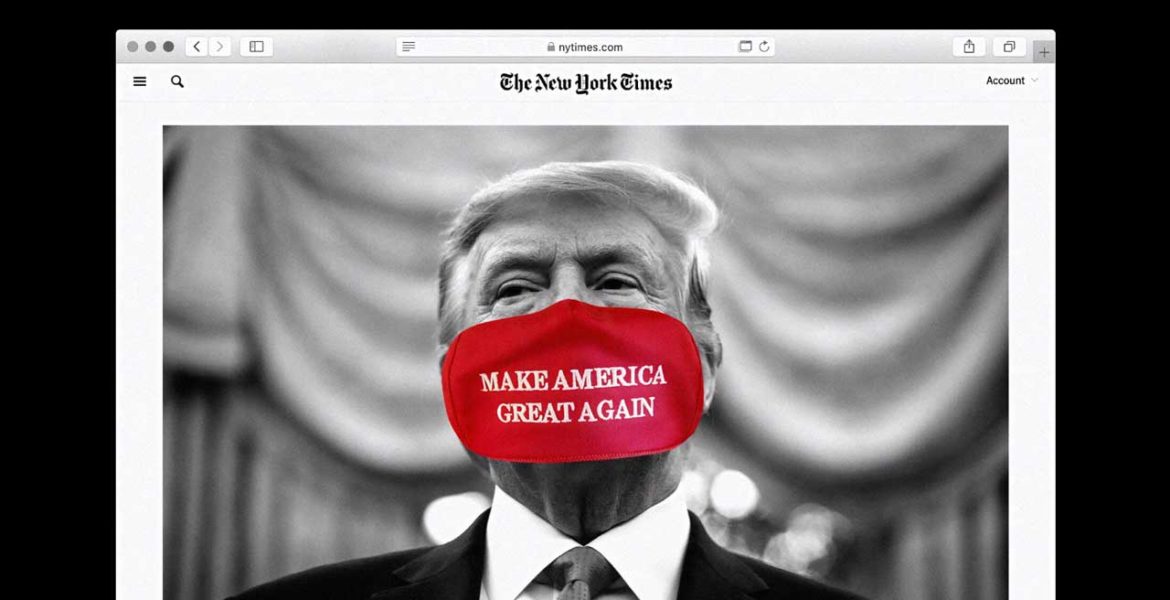Political advertising in the US has come a long way since its inception in the 1950s, but in recent years it has undergone an unprecedented evolution. Social media has become a dominant force, redefining political campaign tactics as rapidly as it’s redefined the entire media landscape. In an age when, according to Pew Research Center, more than half of American adults get news from social media, Facebook and Twitter have never played a larger role in our nation’s politics.
Unchecked by most of the restraints placed on traditional channels, social media platforms are free to handle political advertising however they see fit. This self-regulation has led Facebook and Twitter to adopt opposing, yet equally unsatisfactory policies.
It’s time to address this glaring lack of oversight and focus on feasible solutions that will allow for fair and democratic elections this November and for years to come.
Twitter and Facebook’s models: The differences and the problems
At the end of 2019, Twitter announced a ban on all political advertising. This seemingly drastic decision in actuality represented a modest sacrifice, with political advertising from the 2018 midterms accounting for only about 0.1% of Twitter’s 2018 revenue. This is primarily due to the platform’s user behavior and anonymity, which render its political affiliation targeting largely useless to political campaigns.
Twitter’s policy, based on Jack Dorsey’s statement that “political message reach should be earned, not bought,” brings a host of negative consequences. The most common critique is that it gives an advantage to incumbents like Trump, who have had more time in the public eye to accrue followers without having to share the spotlight. Even more harmful though, is the misguided notion that without being able to pay for promotion on Twitter, candidates will have to “earn” their reach on the platform. Twitter is not a bubble — organic reach is a measure of popularity, which can still be purchased through any other media channel, most of which are cost-prohibitive to lesser-known or under-funded candidates.
While Twitter’s policy is a lesson in unintended consequences, Facebook’s is one in corporate self-interest. While Twitter earned roughly $3 million in political ad revenue from the 2018 midterms, Facebook took in $284 million. Given the strength of their political advertising, it’s hardly surprising that Facebook not only allows political ads, but exempts them from fact-checking. Mark Zuckerberg’s claim, vaguely reminiscent of the Citizens United ruling, is that “political ads are an important part of voice.” In this case, that statement is true — but only because Facebook made it so. Changes to their algorithm in 2018 deprioritized organic content from businesses and political campaigns, incentivizing ad buys by ensuring the only way for candidates to have a voice on Facebook is to pay for one.
How to improve political advertising on social media
The current system of self-governance is clearly not a viable approach. While there are still many unanswered questions regarding legislation and enforcement, it’s worthwhile to determine the types of solutions that could help ensure the integrity of our political system.
Restore transparency
Transparency is crucial to ensuring fairness and legitimacy when it comes to political advertising. Yet, while there have been some efforts from platforms to make information publicly available, social media manages to skirt many of the disclosure requirements that apply to traditional channels. Measures like the Honest Ads Act could close this loophole, requiring platforms to make an effort to stop ad purchases by foreign entities and mandating transparency around the funding and targeting of political ads.
Restrict microtargeting
Microtargeting has proved to be an enormously destructive force on our political system, erasing the accountability that comes with participation in a shared national discourse. It allows politicians to cater to the confirmation bias of their constituents by speaking only to those already sympathetic to their messaging. This perpetuates the influence of deceptive and extremist content by keeping it safely siloed within echo chambers, shielded from the scrutiny that comes with widespread visibility.
Enforce fact-checking
Inaccurate and deceptive content runs rampant on social media, doing untold damage to the integrity of our political system. While it’s understandable that platforms struggle to find effective ways to fact-check content given the resources needed to perform the task at scale, enforcing the accuracy of political ads is both vital and achievable. Platforms should explore approaches that put the burden on political advertisers, requiring them to fund third-party fact-checking of their own content in order to run it.
The bottom line
While the 2016 presidential election should have served as a wakeup call about the dangers of political advertising on social media, in its aftermath we’ve primarily seen ineffective or even counterproductive action from Facebook and Twitter. Without real solutions, social media jeopardizes not only our national discourse but the integrity of our political elections. However, the enforcement of transparency, accuracy, and targeting limitations would go a long way towards helping Facebook and Twitter become the positive, democratizing forces they aspire to be.


So interesting. We need Congress to regulate these industries before the destruction they’ve wreaked becomes more permanent
Interesting and helpful in equal measure. Appreciate your defining the issues and problems, as well as realistic solutions.
Elegantly & practical solution to a extremely difficult and complex problem. As Aaron Sorkin stated in the N.Y. Times
“The law hasn’t been written yet — yet — that holds carriers of user-generated internet content responsible for the user-generated content they carry, just like movie studios, television networks and book, magazine and newspaper publishers.”